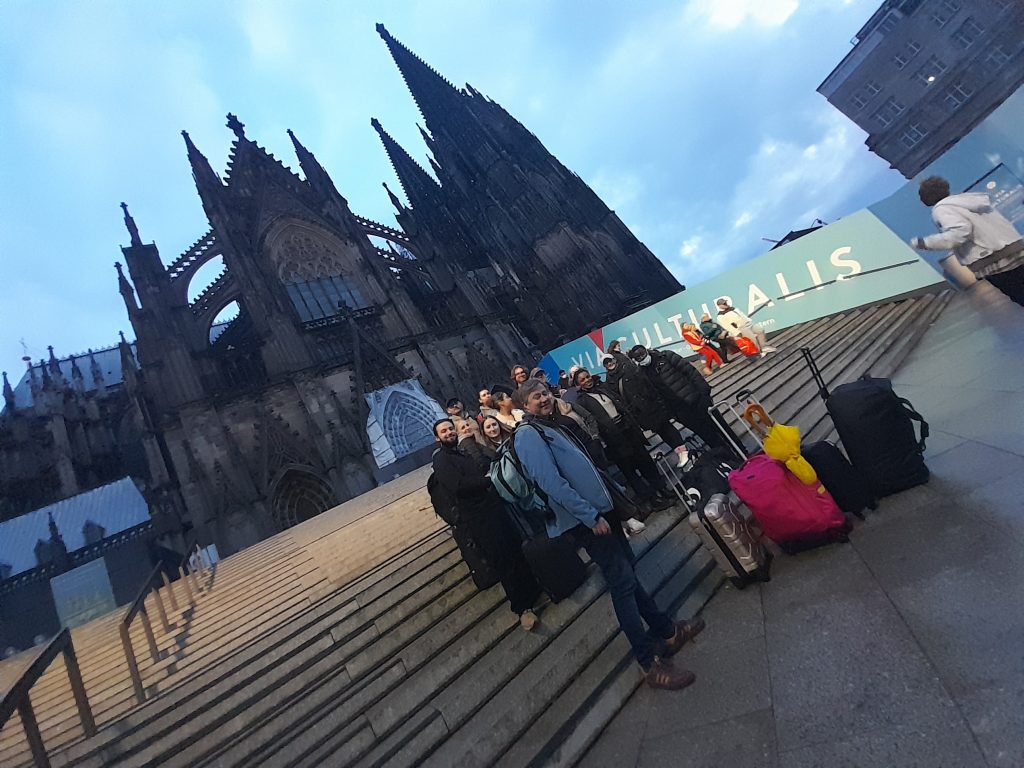Lord Biro left the building on 4 December 2022. He was a Nottingham legend, campaigning on everything from free neutering of cats and Boris Johnson to impeaching Tony Blair for war crimes. The above video is a celebration of his life via artefacts found in the Ray Gosling Archives and from his website.
For years, I would bump into Lord Biro in Forest Fields, out on the campaign trail. He would have massive Elvis ‘Las Vegas’ glasses on, greet you with an ‘uh huh,’ and be armed with a plaggy bag full of flyers he’d had photocopied down the nearest community centre.
On the surface, his campaigns seemed a bit puerile – a poem in rhyming couplets and a drawing that looked like it had been knocked out in a few seconds. But beneath the puns and euphemisms he was fighting serious social issues – both local and global – many of which were in collaboration with Ray Gosling.
In May 1963, Ray Gosling stood as an Independent Liberal in the Lenton Ward, inviting people to ‘Vote for a Madman. For just once in your life. Vote for a madman’. He got 475 votes and it would pave the way forward for people such as Screaming Lord Sutch. However, a criminal record would later prohibit Gosling from standing again which is the point at which Biro stepped in. Together they formed the ‘Bus Pass Elvis Party’.
As a member of the ‘Bus Pass Elvis Party,’ Biro and Gosling fought the cause of the elderly. Gosling did this on TV via his Inside Out documentaries addressing issues such as poverty and loneliness. He also paid the £500 retainer required to stand for election, knowing full well that Biro was unlikely to obtain the specified proportion of votes that would guarantee the refund.
Biro stood in various elections up and down the country. In 1997 he went up against Neil Hamilton in the Conservative stronghold of Tatton. Hamilton was at the centre of a ‘cash for questions’ row which would eventually see him lose his seat to Martin Bell, who was running as an independent MP. If you want to read more about this, see John Sweeney’s excellent book Purple Homicide: Fear and Loathing on Knutsford Heath.
In 2014 he reaped a success of sorts in Nottingham City Council when he received 67 votes, beating the liberal democrat candidate, Tony Marshall, who managed a measly 56 votes. Biro campaigned for a 30 percent discount in brothels for OAPs, later it would be free condoms for OAPs. But beneath the silliness was a serious question: What were the council doing to provide for the elderly. This would see him campaigning against the lack of public toilets, and the right to use your bus pass at any time.
One social issue he was particularly vocal about was the Bedroom Tax. This was a provision of the British Welfare Reform Act 2012 whereby tenants living is social housing could lose benefits for having a spare room. The policy was intended to evict people from their homes – no matter how long they had lived there. The implication being they should be grateful for whatever they were given. Biro was ‘all shook up’. It’s one of the few times I witnessed his humour give way to anger.
In 2014, when I began putting together Dawn of the Unread – a series of online comics celebrating Nottingham’s literary history, I wanted to include a nod to Biro’s campaigning and so included his flyer ‘Elvis Wouldn’t be Seen Dead in Tesco’ on a pub wall in Issue 12. Again, this campaign was raising a really important point about the homogeneity of city centre planning or as the Militant Elvis Anti-Tesco Popular Front (one of the numerous names his party went under) put it, our aim is to ‘overthrow the Corporate Capitalist State which turned Elvis, a man of immense talent, into a fat media joke’.
We tried to interview him for LeftLion numerous times, but he wasn’t interested in discussing his upbringing or his working life as a painter and decorator. He just wanted to do the fun stuff. In 2010 we worked together at the British Art Show at the Nottingham Contemporary where he read some pithy poems slagging off art establishment celebrities. One of these was Damien Hirst, who in 2007 spent £12 million sticking 8,601 diamonds onto a skull he called For the Love of God. Appalled by this vulgarity, we nipped into Toys R Us, bought a medical skull toy, and covered it in jelly tots. Unfortunately, nobody bought it.
Dave Bishop ‘left the building’ on 4 December at the age of 78.
The above article was originally published on LeftLion. I chose the title Return to Sender for this as it is the greatest headline never published. It was the original headline for Elvis’s death in The Sun (I think) but was pulled at the last minute out of respect.
For more information on Lord Biro see grumpyoldelvis.co.uk

